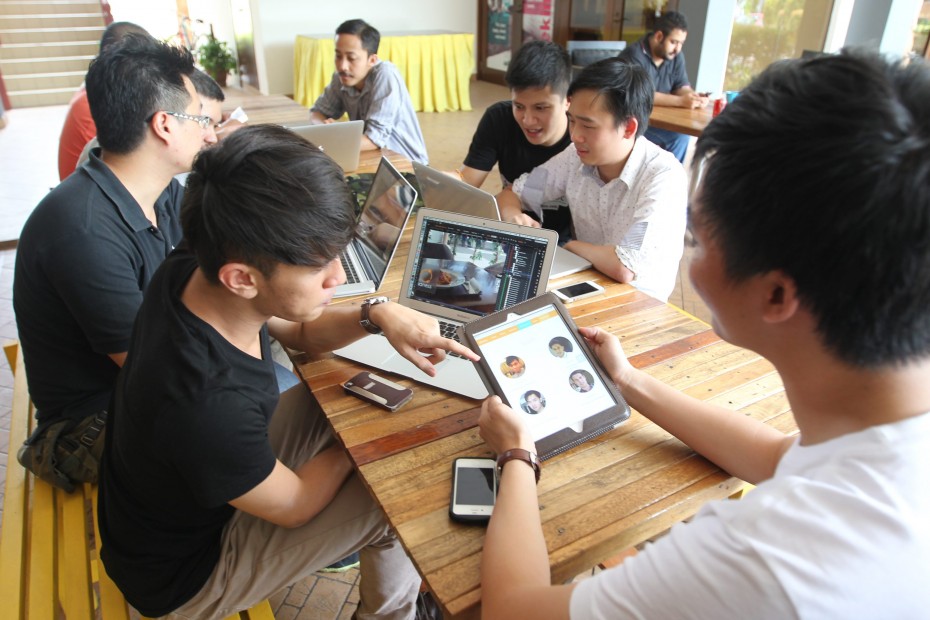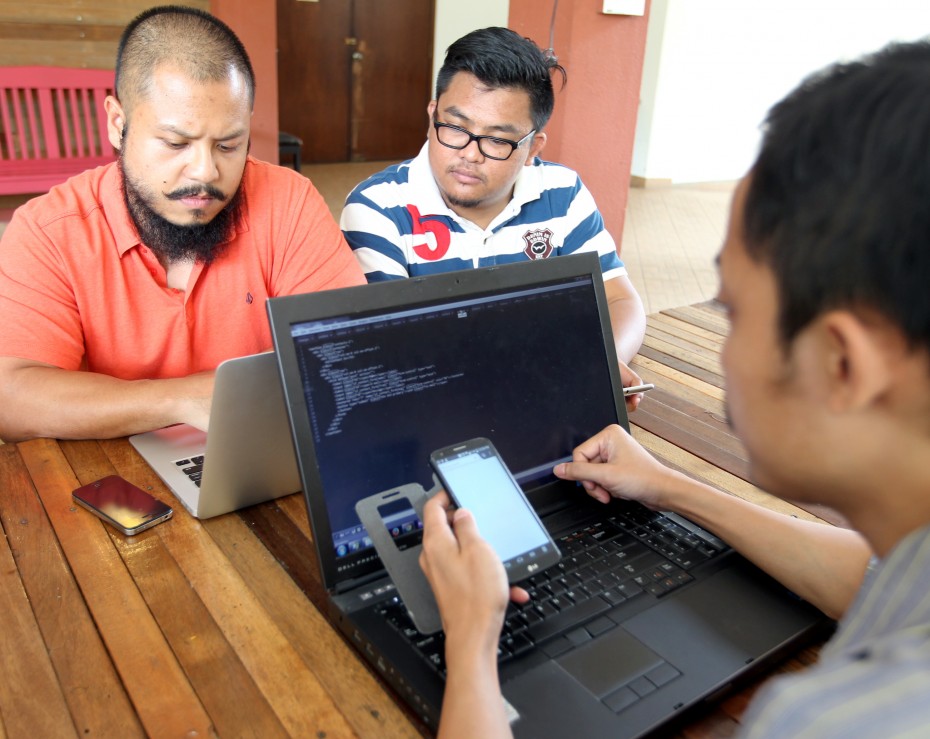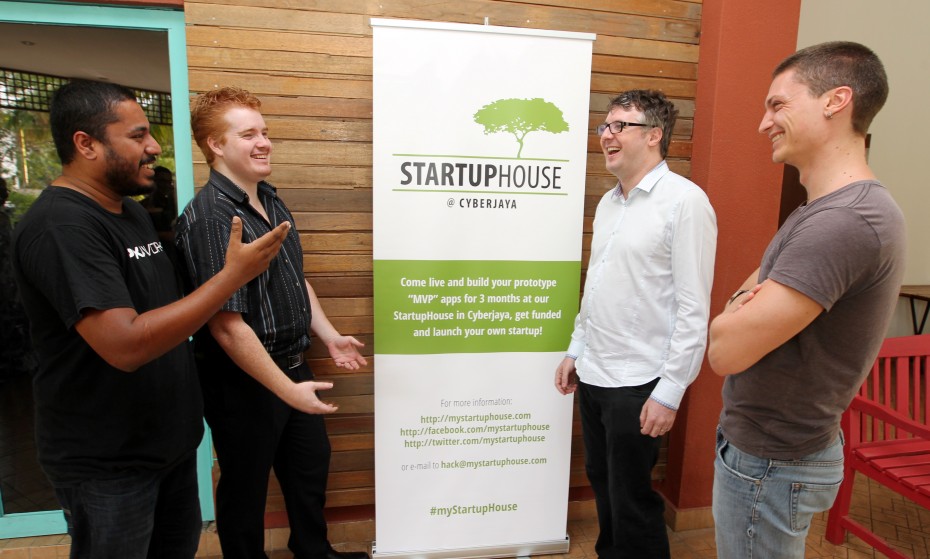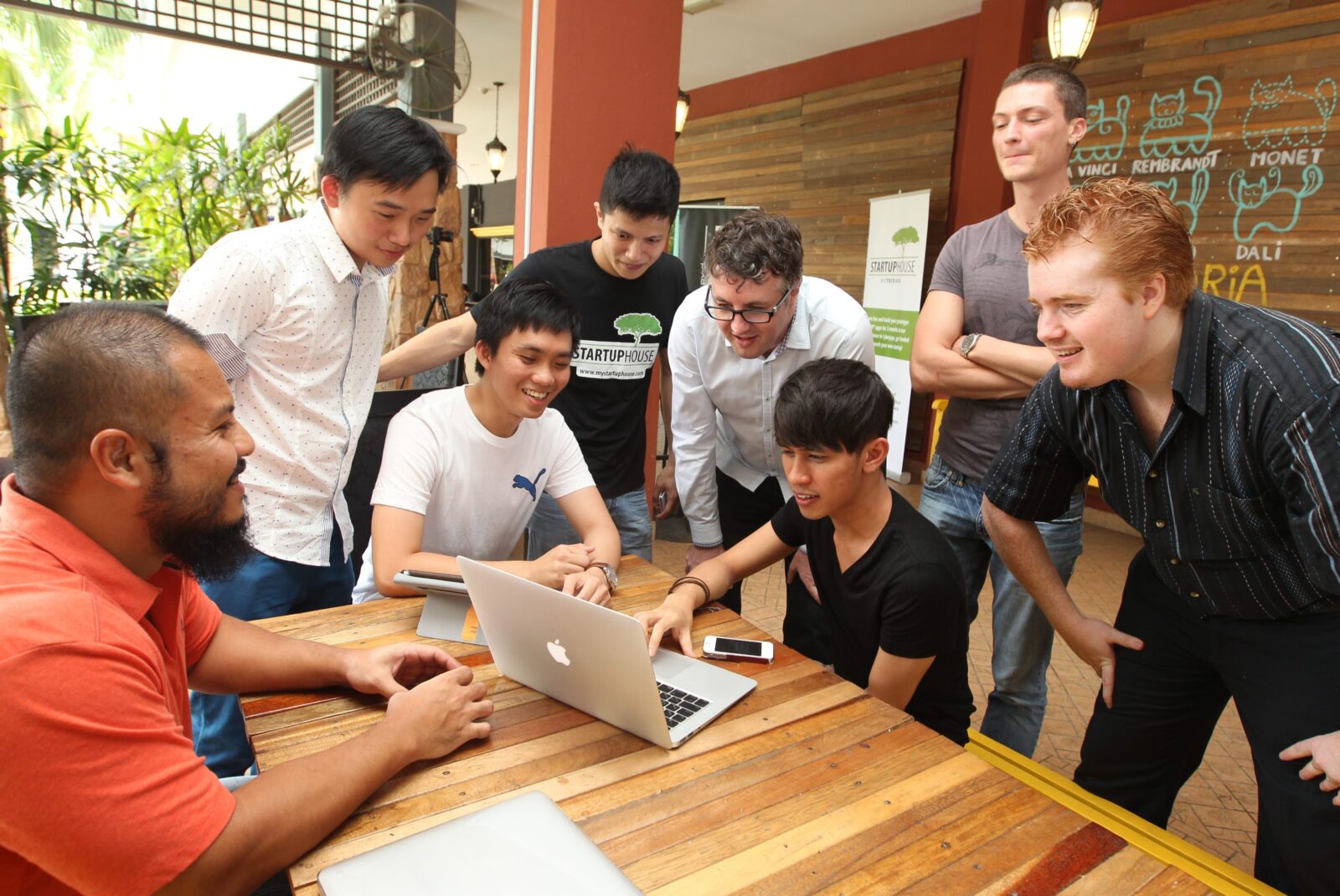MALAYSIANS are an increasingly tech-savvy bunch and nowhere is this more evident than in the nation’s fascination with mobile apps. According to the Top 10 Smartphone Apps South-East Asia ranking from July 2013 (based on Nielsen Informate Mobile Insights), the average Malaysian smartphone user spends 66 minutes a day on apps, one of the highest in the region.
So it’s hardly surprising that more young Malaysians are looking to initiate their own tech startups to develop apps, especially with the government allocating RM375mil to provide financial support for start-ups under the Budget 2015.
But the reality is, an aspiring app developer does not an entrepreneur make.
“They’re basically developers and designers who know how to make apps. But what about team work, project management, branding, finances and other business elements?” said StartupHouse programme director, Inbaraj Suppiah.

Head start: StartupHouse gives young tech developers the opportunity to build up their app with the support of other app programmers and mentors before pitching the apps to investors.
Currently in its pilot phase, StartupHouse is a programme where aspiring tech entrepreneurs are hand picked (after making pitches) to develop their fledgling app ideas, which they will then have to design and complete by April.
During the three-month programme, the five teams selected have to live together and are given invaluable coaching on how to develop key entrepreneurial skills and refine and validate their ideas before building their apps, the aim being to mould them into business-minded entrepreneurs rather than bare-bones app developers.
After the programme ends, all the entrepreneurs are given the opportunity to meet and pitch their apps to potential investors.
RELATED STORY: Meet the teams at StartupHouse and the apps they’re working on
The mentors involved in StartupHouse are programme director Inbaraj, MaGIC Startup Academy director Dr Lau Cher Han, entrepreneur and consultant Daniel Walters, GeoMash founder Damien Santer and GeoMash chief technology officer Tim Chandler.
According to Walters, StartupHouse provides these teams with the best chance to succeed because it allows them to experiment, make mistakes and learn. And with the support from other teams as well as mentors, participants are able to learn relatively quickly.
Walters, who has 15 years of IT experience in Australia, and five years as senior director at Experian Malaysia, added that the mentors are also trying to teach participants how to prioritise their work, verify their concepts as quickly as possible at a low cost, deal with setbacks and prepare business plans and presentations for their apps.
After spending two months in the programme, participant Haimi Edzwan Hashim, 37, said it provides a supportive environment for him to work on his app.
“The problem with startups is you don’t have a support group. If you’re in trouble, nobody will understand why you’re doing something that won’t earn any money,” he said, having given up his job in the oil and gas industry after 10 years.
He has been in the startup scene for a year and he and team member/co-founder Mazlan Paiman, 31, have been working on their app Transit Watch for three months.

(From left) Haimi Edzwan Hashim, Muhammad Shahrir Bahar and Mazlan Paiman are among the lucky app developers selected to join StartupHouse.
“At StartupHouse, you are surrounded by similar-minded people and mentors who have been through the journey and made it. Without them, our progress won’t be this fast.”
As for Dean Nazmuddin, 24, who does design and marketing for meal invitation app Jioness, StartupHouse serves as a learning curve for him, especially when it comes to app design.
The computer science student at Universiti Kebangsaan Malaysia explained that this programme is not a competition, so everyone helps each other to complete their apps on time.
Jioness co-founder Yong Shen Feng, 24, said participants are also encouraged to test out their app to get the validation they need to improve.
Fellow participant Syed Muzani Syed Ahmad Safri, 29, agreed that it is important to analyse the market. That was why he, along with his teammates Muhammad Shahrir Bahar and Asmahani Abu, launched their app Recipe Diet Atkins in late January.
“We wanted to see the public’s response to the app. Within 24 hours, the app had more than 1,000 downloads and feedback from 44 people! And with that feedback, we were able to continue working to make it better for our users,” he said.
RELATED STORY: Here are five basic tips to launch your own tech startup

(From left) StartupHouse programme director/mentor Inbaraj Suppiah and fellow mentors Tim Chandler, Daniel Walters and GeoMash staff Gabriele Pallaver will coach participants on app development as well as the business side of things, which is where many talented developers fall short.
But it’s not just about having a great idea. Walters emphasised that it’s more important that the teams have direction, openness to evaluating their progress and determination.
Inbaraj added that when investors are involved, they tend to evaluate the team or the company rather than just the app because if the app fails, the team can come up with a new idea and develop another app.
“Once the teams are done with their apps, we’ll be inviting our current sponsors, other partners and investment groups to have a look at the ideas and hopefully invest. So it’s not a competition, but an opportunity for them to do what they love and grow,” said Inbaraj.







Leave a reply